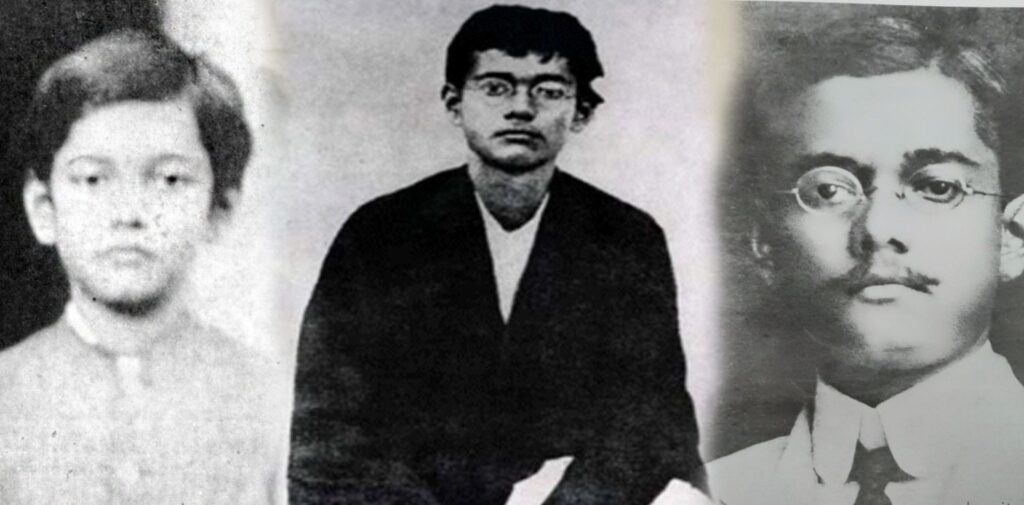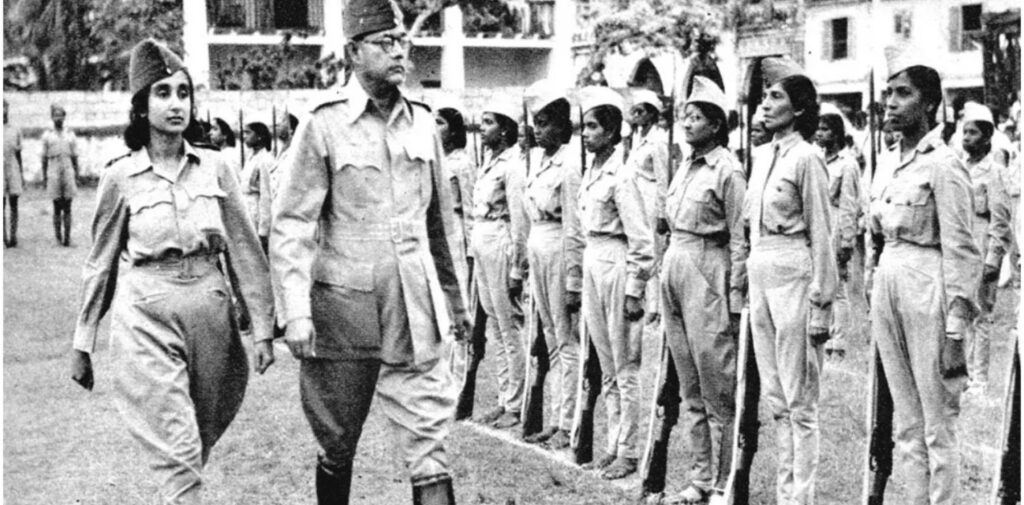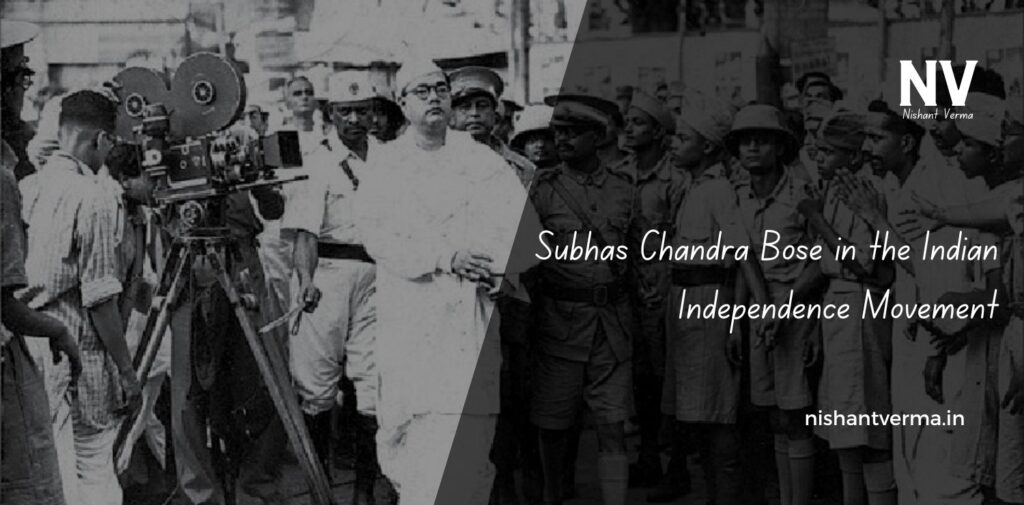Introduction: Who Was Subhas Chandra Bose?
Subhas Chandra Bose, often called Netaji, was one of the most important leaders in the history of India’s struggle for independence. His bravery, leadership, and determination to make India free from British rule inspired millions of Indians. He is remembered for his courage, his strong ideas, and the powerful steps he took to fight against the British. Even today, people celebrate his life and his role in India’s journey to independence.
Early Life of Subhas Chandra Bose
Subhas Chandra Bose was born on January 23, 1897, in a small town called Cuttack in present-day Odisha. He came from a well-off family, and his father, Janakinath Bose, was a successful lawyer. Subhas was a bright student, and he went to some of the best schools in India and then to England to study further.
In England, Subhas Chandra Bose studied at Cambridge University, where he passed the Indian Civil Services exam. The Indian Civil Services was a prestigious job under the British government. But despite his success, Bose felt uncomfortable working for the British. He did not want to work for a government that ruled over his own country, so he decided to leave this job and dedicate his life to India’s freedom.

Subhas Chandra Bose and the Indian National Congress
When Subhas Chandra Bose returned to India, he joined the Indian National Congress (INC), the main political party that was fighting for India’s independence. At first, he worked with Mahatma Gandhi and other Congress leaders like Jawaharlal Nehru, who wanted to use peaceful methods like non-violence and civil disobedience to fight for independence.
However, Bose had his own ideas. He believed that while non-violent methods were important, India needed a more forceful approach to challenge the British. He was not afraid to speak out about what he thought was the best way to achieve freedom. His strong ideas made him a popular leader among young Indians, but also created disagreements with some other Congress leaders.
The Quit India Movement and Bose’s Separation from Congress
In 1942, when the Quit India Movement was launched by Mahatma Gandhi, Subhas Chandra Bose was in prison. The Quit India Movement was a call for the British to leave India immediately, but while Gandhi wanted the movement to be peaceful, Bose believed that more drastic action was needed.
Because of his difference in approach with Gandhi and other leaders in the Congress, Bose eventually resigned from the position of Congress President. He felt that the Congress was not doing enough to fight against British rule. He wanted to create a new way to fight for freedom, which would include the use of force and building an army to challenge the British.

Formation of the Indian National Army (INA)
Subhas Chandra Bose’s most famous contribution to India’s struggle for independence was the creation of the Indian National Army (INA). The INA was an army that he formed to fight against the British. Bose believed that the key to India’s freedom was to build a strong army that could challenge the British military.
Bose went to Germany and Japan during World War II to seek support for his cause. He wanted to get help from other countries who were fighting against the British and other European powers. In 1942, he managed to form the INA with the help of the Japanese, and he became its leader. His famous slogan, “Give me blood, and I shall give you freedom!”, inspired many young men to join the INA.
The INA and the Fight Against the British
The Indian National Army, under Bose’s leadership, fought alongside the Japanese army in Southeast Asia and Burma (now Myanmar). The goal was to free India from British rule by using military force. Bose’s leadership gave hope and courage to many Indians, who saw him as a brave and bold leader.
Although the INA did not win the war, its efforts were significant. The British realized that India’s independence movement was growing stronger and that they could no longer ignore the demands of the people. The INA’s struggle helped to make it clear that India would not stop fighting for freedom.
Bose’s Legacy and His Mysterious Death
Despite the challenges, Bose’s courage and determination were remembered by millions of Indians. His leadership in the formation of the INA showed that he was willing to take bold steps to achieve independence, even if it meant fighting a war. Unfortunately, in 1945, when World War II ended, Bose’s life took a tragic turn. He is believed to have died in a plane crash on August 18, 1945, in Taiwan, though there are many different theories about his death. Some people believe that he may have survived the crash and lived for many years in hiding, but the exact details of his death remain a mystery.

Subhas Chandra Bose’s Legacy in India’s Independence Movement
Even though Subhas Chandra Bose did not live to see India become free, his efforts played an important role in the country’s independence. His courage, determination, and willingness to take risks made him a hero in the eyes of many Indians. Bose is often remembered as a revolutionary who fought with all his strength to free India from British rule.
His work inspired countless other freedom fighters, and his slogan, “Jai Hind!” (which means “Victory to India!”), became a symbol of Indian pride and patriotism. Today, people across India honor him, remembering his courage and sacrifice for the country.
Conclusion: The Importance of Subhas Chandra Bose in India’s Independence
Subhas Chandra Bose was a leader who believed in fighting for freedom at any cost. His bold ideas, the formation of the Indian National Army, and his refusal to accept British rule made him a key figure in India’s struggle for independence. Though he did not live to see India’s freedom, his actions helped to inspire a nation and bring about the end of British colonial rule.
Subhas Chandra Bose showed the world that India was ready to fight for its freedom and would not give up. His life is a lesson in courage, determination, and the power of believing in one’s ideals. Even today, he remains one of the most respected leaders in India’s history. His words, his actions, and his sacrifices will continue to inspire generations of Indians as they strive to make their country proud.




